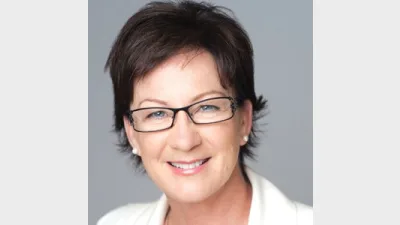SPAA maintains resistance to SMSF compensation scheme



On the back of comments made by the Assistant Treasurer, Senator Arthur Sinodinos, stating that the self-managed super fund (SMSF) sector needed to be 'self-reliant' and that trustees needed to understand this as they had chosen to be responsible for their own decision making, the SMSF Professionals' Association of Australia (SPAA) has announced that it remains steadfastly opposed to any form of compensation scheme for SMSFs.
Commenting further, Andrea Slattery, CEO of SPAA, said that the industry body concurred with the Minister.
"On this issue and the issue of raising the standards of advice and competency, SPAA concurs with the Minister," she said.
"The guiding philosophy underpinning self-managed super is that trustees/members take responsibility for their own retirement income outcomes.
"By opting to go down the SMSF path, trustees/members have to appreciate that decisions rest with them, although they can get advice, either directly or indirectly, from specialist SMSF advisers."
Slattery said any compensation scheme should only be part of a broader financial services scheme where clients have suffered financial losses because of the misconduct or insolvency of a provider of a product or service.
She added that the compensation should only then be funded by a levy imposed on that industry sector where the misconduct occurred.
An all too common misconception, according to Slattery, was that SMSFs were not entitled to compensation when fraud or theft occurred.
"This is incorrect," she said.
"Although SMSFs don't have access to compensation under the Superannuation Industry (Supervision) Act 1993 (SIS) Act that is available, at the Minister's discretion and only where it is in the public's best interest to approve compensation for APRA-regulated funds, there are other legal avenues that SMSFs can pursue.
"These include but are not limited to personal indemnity schemes; actions under the Corporations law; action in the courts to obtain compensation for damages; the Financial Ombudsman; and the banking and credit legislation," Slattery explained.
"Although these legal options are not foolproof, they do give trustees/members options when there are instances of fraud or theft.
"But then again, no current scheme is foolproof."
Originally published by SMSF Essentials.
Recommended for you
Data and technology provider Novigi has acquired Iress’ superannuation consulting and managed services business from Apex Group.
AMP is to launch a digital advice service to provide retirement advice to members of its AMP Super Fund, in partnership with Bravura Solutions.
Unveiling its performance for the calendar year 2024, AMP has noted a “careful” investment in bitcoin futures proved beneficial for its superannuation members.
SuperRatings has shared the median estimated return for balanced superannuation funds for the calendar year 2024, finding the year achieved “strong and consistent positive” returns.









